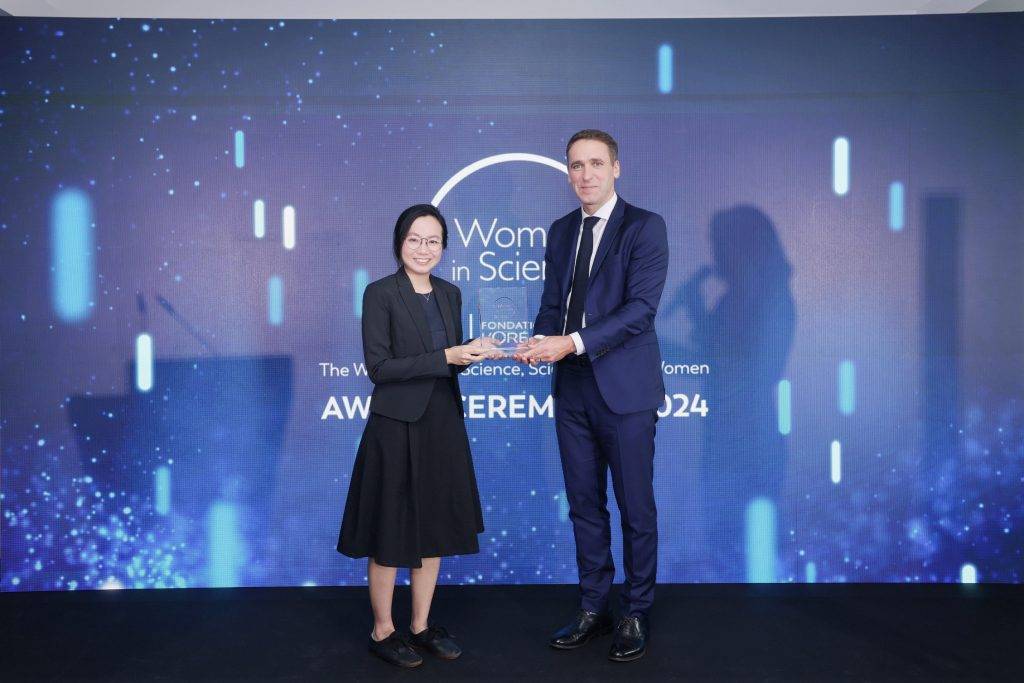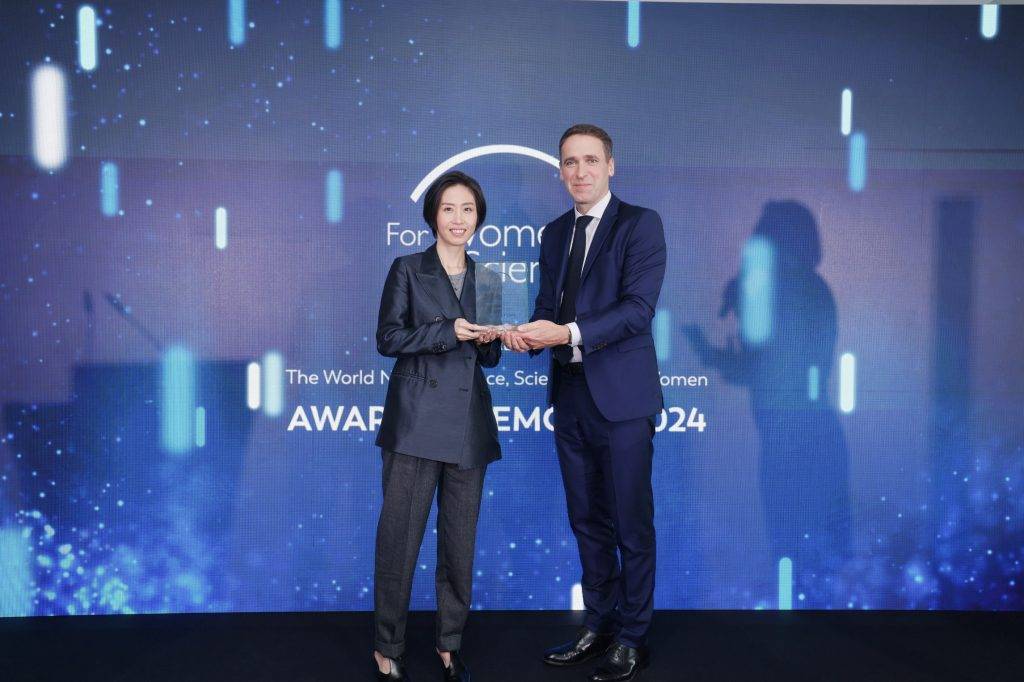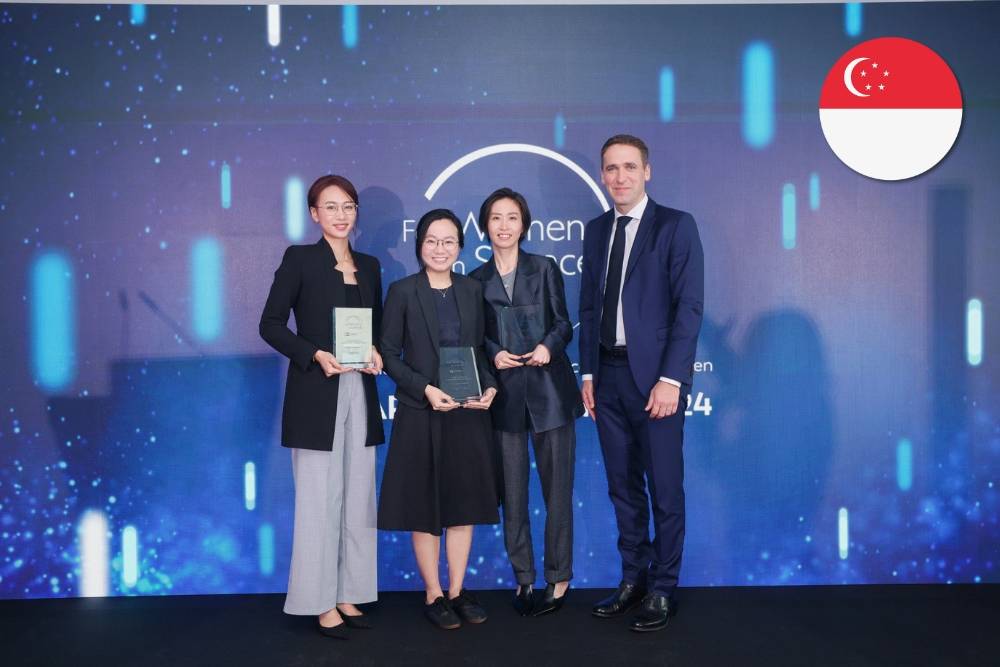The World Needs Science, and Science Needs Women – Female Singaporean scientists are rewriting the rules of healthcare, tackling cancer metastasis and pandemic preparedness with transformative research.
Dr. Grace Lim and Dr. Tianshu Xiao stood out, not just for the ambition of their work, but for its significance in healthcare. Metastatic cancer, one of medicine’s most elusive foes, is the focus of Dr. Lim’s pioneering research. Tackling healthcare inequities, Dr. Xiao develops antiviral drugs designed to serve underserved communities.
Also honoured for her impactful work, Dr. Iris Yu has been recognised for transforming organic waste into carbon-neutral resources, addressing sustainability challenges in Singapore.
“Women bring unique perspectives and innovative solutions to the world’s biggest challenges,” remarked Tomas Hruska, Managing Director of L’Oréal Singapore, encapsulating the spirit of the awards.
Their achievements highlight a powerful truth: science thrives when every voice has the chance to contribute.
Taking the Fight to Cancer’s Deadliest Battleground

For Dr. Lim, tackling gastric cancer is both a professional mission and a regional necessity. “My research is on gastric cancer, and this is a very important problem, especially in this part of the world,” she notes.
The disease is prevalent across Asia, where late diagnoses make it one of the most pressing medical challenges.
Dr. Lim’s research targets cancer stem cells, the driving force behind tumour growth, metastasis, and resistance to treatment. These cells enable cancer to spread aggressively, making metastatic stages the hardest to treat. By studying how these cells survive and adapt in different environments, she is uncovering strategies to disrupt their survival and stop the disease at its source.
Dr. Lim’s work could redefine how clinicians treat late-stage cancers, offering new hope for patients facing some of the most aggressive forms of the disease.
Her work, carried out at A*STAR, combines human cancer samples with advanced research models to develop therapies that go beyond attacking primary tumours.
“In our lab, we are a very diverse group—different genders, different age groups, different continents. This is really important in science, where creativity and innovation are key,” she explains.
She believes this diversity allows her team to explore problems from new perspectives, driving innovation in tackling metastatic cancer.
Learn more: How Men and Women Experience Pain Differently
AI-Driven Breakthroughs in Antiviral Research

While Dr. Lim focuses on combating cancer, Dr. Xiao is transforming how antiviral drugs are developed by applying artificial intelligence. Her research focuses on creating cost-effective and accessible treatments to address the healthcare inequities that leave underserved regions vulnerable to infectious diseases.
“Vaccines are one of the most important methods to prevent infectious diseases, but there should also be other options,” she explains.
Dr. Xiao’s use of AI streamlines drug development by accelerating processes, improving precision, and reducing costs. “AI can help improve efficiency and maximise accuracy,” she notes, envisioning its potential to transform diagnostics, imaging, and other medical applications.
Her research is driven by a clear vision to create antiviral treatments that are stable at room temperature, eliminating reliance on costly cold-chain storage. This approach makes her solutions particularly suited for regions with limited healthcare infrastructure. The innovations coming out of her lab do not just address current gaps; they also build resilience against future pandemics.
Diversity is Science’s Secret Weapon
For Dr. Lim, diversity isn’t just a buzzword—it’s the engine of progress. Her lab at A*STAR thrives on collaboration across genders, generations, and cultures. “This mix is critical in science,” she explains. “Creativity and innovation come from looking at problems from perspectives you’d never considered before.”
Dr. Xiao agrees, noting how diversity in STEM can bring attention to unmet needs in global healthcare. “As a woman in STEM, I think it’s very important to notice different needs and to address the problem,” she explains, reflecting on how her research prioritises affordable treatments for underserved regions.
Diversity also means dismantling harmful stereotypes. “There’s a misconception that girls can’t excel at physics or maths,” Dr. Xiao observes. Changing this narrative, she argues, begins with creating role models who show that science is a space for everyone.
Dr. Lim reinforces this, highlighting the power of visible leadership. “It’s helpful for young women to see others in leadership positions, advancing meaningful research, and know that it’s possible for them to achieve that too,” she says.
A Legacy of Inspiration
In fields often dominated by men, Dr. Lim and Dr. Xiao’s achievements send a clear signal to the next generation of scientists. The future of science is diverse and inclusive.
Dr. Lim sees this recognition as a chance to encourage others to confront critical challenges in medicine. “Through this award, we are raising awareness of exciting new areas of research. Hopefully, it inspires women to join us in this fight against cancer,” she says. Their achievements are a testament to the impact of Singaporean women in science, inspiring the next generation of researchers
Dr. Xiao, meanwhile, hopes her work motivates others to focus on equity in science. Her research reflects a larger goal of closing healthcare gaps in underserved communities. “It’s important for young women to find what they’re passionate about and carry on,” she shares, pointing to the resilience needed to push the boundaries of STEM.
Both scientists recognise that their achievements are not just individual milestones, but also opportunities to inspire. Dr. Lim believes representation is key: “It’s very important for young women today to have mentors they can look up to, and know that they too can one day be someone like that.”
Their recognition is not just a celebration of individual achievement but a call to action. When science includes every voice, it unlocks solutions for a better, more equitable future.
Image credit: L’Oréal Singapore
Learn more about diversity in healthcare:

